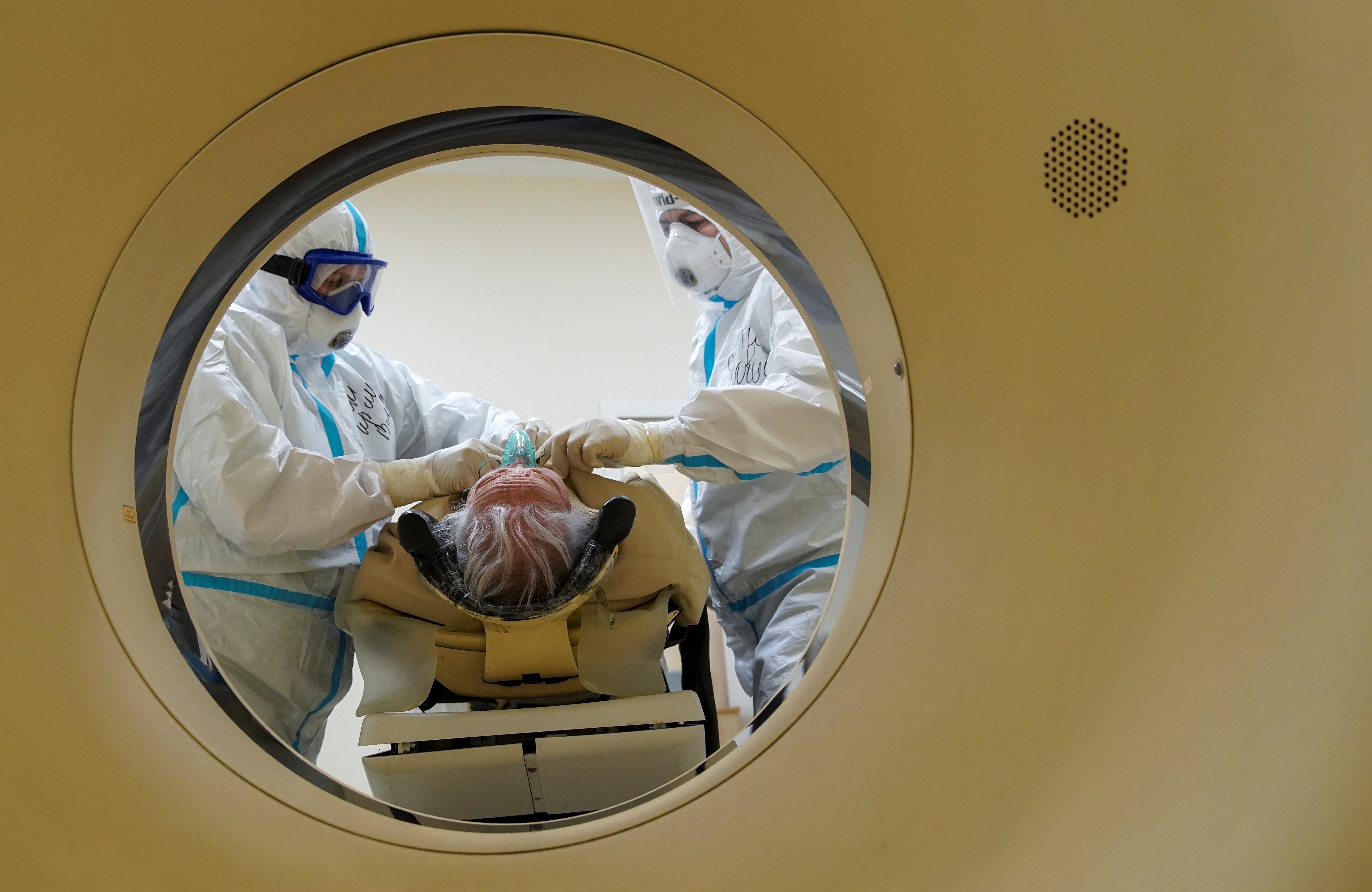Healthy woman died after ‘unnecessary and invasive’ CT scan by profiteering private doctors, coroner says
Peta Hickey had died in 2019 after a deadly allergic reaction to contrast dye injected during a CT scan

Your support helps us to tell the story
From reproductive rights to climate change to Big Tech, The Independent is on the ground when the story is developing. Whether it's investigating the financials of Elon Musk's pro-Trump PAC or producing our latest documentary, 'The A Word', which shines a light on the American women fighting for reproductive rights, we know how important it is to parse out the facts from the messaging.
At such a critical moment in US history, we need reporters on the ground. Your donation allows us to keep sending journalists to speak to both sides of the story.
The Independent is trusted by Americans across the entire political spectrum. And unlike many other quality news outlets, we choose not to lock Americans out of our reporting and analysis with paywalls. We believe quality journalism should be available to everyone, paid for by those who can afford it.
Your support makes all the difference.An inquest report into the 2019 death of a Melbourne woman has found that the 43-year-old died after a deadly allergic reaction to a dye for an “unnecessary and invasive” CT scan.
Peta Hickey, a mother of two, died on 9 May 2019 after she was injected with contrast dye for a CT scan. Hickey had gone for a heart check her employer organised at a radiology clinic in Moonee Ponds city eight days earlier on 1 May 2019.
After she was injected with the dye, Hickey complained of nausea and shortness of breath and was rushed to a hospital, where she died.
While reading the findings of the inquest report at the Coroners Court of Victoria, coroner Simon McGregor said on Monday that the test was “unnecessary and proved nothing”, reported Australian news portal news.com.au.
Mr McGregor hit out at the medical industry for putting “profits over patients” and said that the autopsy confirmed that Hickey had no heart issues.
“It may be somewhat of an oversimplification but the snapshot provided by this inquest has revealed an industry putting profits over patients,” he said.
Hickey’s employer, a firm called Programmed, had organised the heart check through Priority Health Care Solutions, which outsourced “bulk medical assessments” from another company called Jobfit.
Jobfit employed Doumit Saad, whose electronic signature was on the referral form for Hickey.
Dr Saad’s referrals were used by medical imaging service MRI Now to send Hickey to Future Medical Imaging Group in Moonee Ponds, where radiologist Gavin Tseng carried out the scan.
The coroner’s report said Dr Saad gave his referral without meeting her and his referral had no clinical notes attached to it.
The report indicted Dr Saad and said his actions were unsafe as he allowed his electronic signature to be used for patients he had not reviewed and had failed to stop the health check programme after he found out his signature was being used.
It also said that Dr Tseng, failing to recognise Hickey’s allergic reaction, didn’t administer adrenaline and proceeded to carry out another CT scan just days after the severe reaction.
It said that Dr Tseng’s actions were due to a lack of training and shock.
The report also held Hickey’s employer responsible for “casually” contributing to her death.
“Peta died as a result of substandard clinical judgment from doctors at the beginning and the end of this programme, combined with a misalignment of incentives among the various business entities that facilitated the process,” Mr McGregor said.
Hickey’s partner Richard, who has been fighting her case, demanded an apology.
“[The finding] puts everybody on notice that invasive testing for asymptomatic patients is a risky business,” said Kathryn Booth, Mr Hickey’s lawyer.
The report has called on federal health minister Greg Hunt to audit the conduct of Australian-accredited diagnostic imaging practices for compliance.
Australia’s consumer watchdog has also been asked to consider taking action against Priority Care Health Solutions and MRI Now for unconscionable, misleading or deceptive conduct.
Programmed, in a statement quoted by the Australian Broadcasting Corporation, welcomed the coroner’s findings and said it was “deeply sorry” for Hickey’s death.
“We are deeply sorry that a programme implemented with the intention of helping and protecting our staff led to the tragic passing of a valued member of our team,” said the statement.
“As a company, we have welcomed the coroner’s recommendations, which include improving patient communication and pre-emptive medical consultation in programs of this nature,” it said, adding that Hickey would be “sorely missed”.
Mr Hickey said that had it not been for the test, his partner would have been around with her children today.
“Instead we prepare for those milestones and another Christmas without Peta as we’ve done every day since she went to work two-and-a-half years ago and didn’t come home after having an invasive and unnecessary angiogram test,” he said.
Join our commenting forum
Join thought-provoking conversations, follow other Independent readers and see their replies
Comments